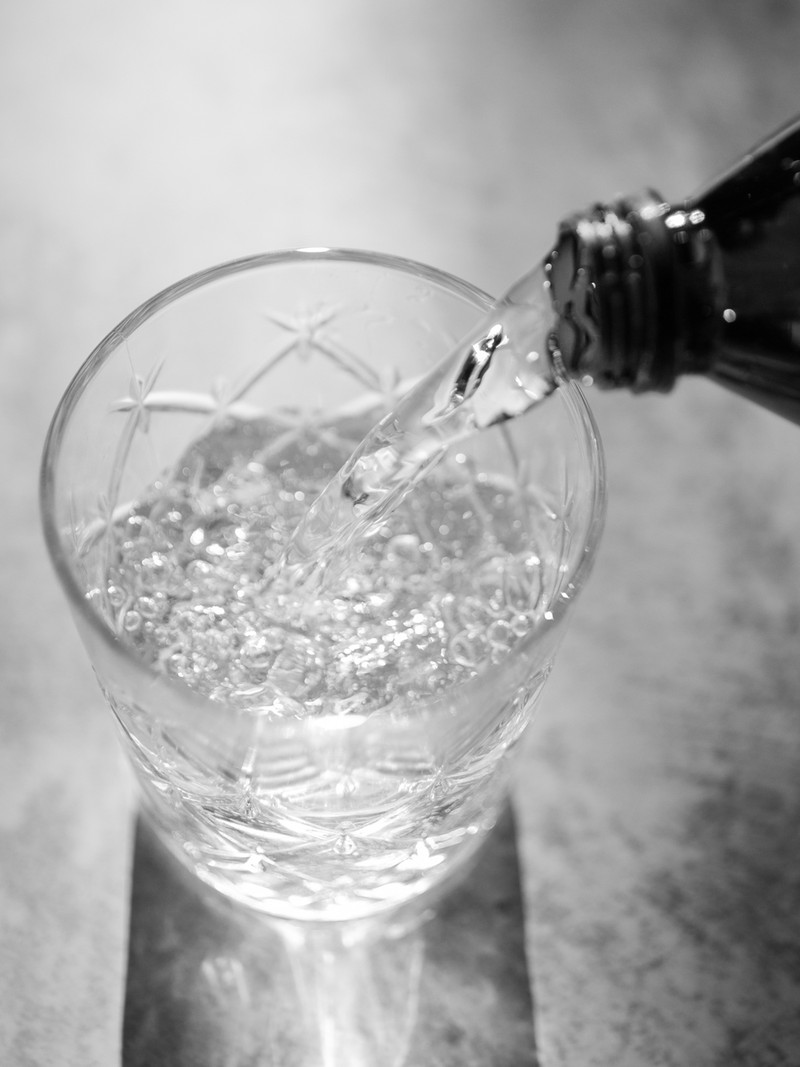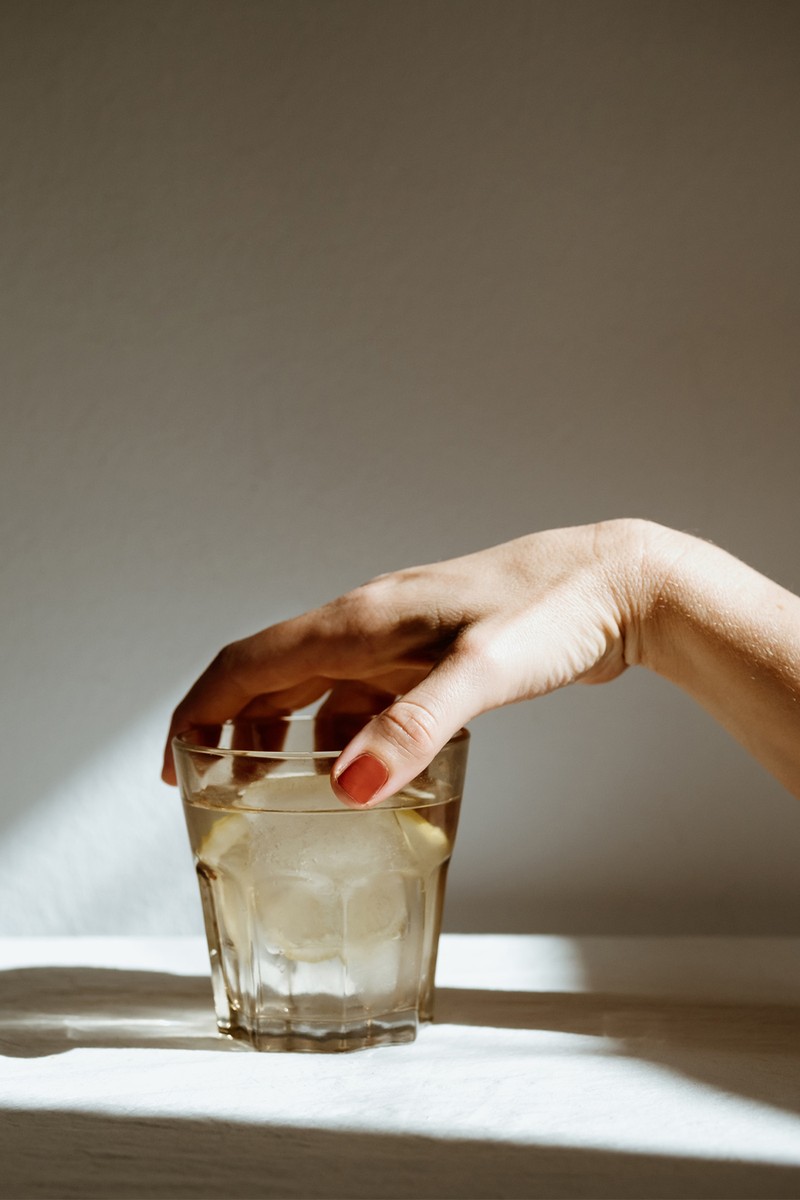
4 Women In Wellness On Going Alcohol Free
Sophie Shotter
Aesthetic Doctor & Host Of Age Well
As a teenager, I was a typical binge drinker, relying on alcohol to feel more confident. I went teetotal for a while, but at the time it was so unusual that I faced social pressure to drink. When I graduated as a doctor, I noticed many senior colleagues drinking excessively to cope with work stress. I vowed this wouldn’t be me and decided alcohol would never become my crutch. Now, I enjoy an occasional G&T or glass of red wine, but it’s not something I rely on. It’s a balanced relationship.
If you go back 20 years, choosing not to drink often meant having to justify your decision. It was frustrating when friends refused to offer non-alcoholic alternatives or made drinking the norm. I’ve learned to navigate this by nursing one drink all night if I’m not in the mood for questions. Today, asking for a non-alcoholic drink is much more accepted.
Instead of reaching for a drink to unwind, I’ve cultivated healthier habits. My self-care routine starts in the morning with meditation, cold plunging and exercise, but my evening rituals are just as important. Lighting candles and doing a short evening meditation help me decompress without the need for alcohol.
The benefits have been undeniable. I never wake up feeling groggy. Wearing an Oura ring has further reinforced my choices: seeing how a single night of drinking impacts my sleep metrics is enough to make me think twice. Prioritising restorative sleep has become central to my wellness routine, and avoiding alcohol supports this goal.
Start by establishing your boundaries. Would you prefer to be teetotal, or just more mindful and moderate? Establish boundaries, like not drinking alone, and find alternatives to replace the ritual of drinking. The positive changes you’ll feel – from better sleep to improved overall well-being – make it much easier to stick to.
Visit DRSOPHIESHOTTER.COM
Cat Meffan
Yoga Teacher & Founder Of Soul Sanctuary
Spending days hungover felt out of sync with my priorities. Growing up with a passion for fitness through gymnastics and dancing, I’ve always valued health. Spending entire days feeling dehydrated, craving sugary foods and nursing awful headaches didn’t sit right. The turning point was a wedding almost ten years ago. I drank heavily and couldn’t piece anything together the following morning. From that moment, I gave up alcohol completely.
Understanding why I leaned on alcohol was a breakthrough. I realised I’d been searching externally for confidence and connection. By turning inward and doing the work on myself, my life transformed. Stopping drinking has been one of the best decisions I’ve ever made, and I’ve never looked back. The changes have been profound, both physically and mentally. I’ve never felt more authentically myself. Overall, friends have been supportive, but not all friendships survived. Some were built on shared nights out, and those friends struggled to accept the changes I’d made.
Find your ‘why’ and stick to it. Facing judgment or pressure to drink isn’t easy, but owning your decision makes it more manageable. Find activities to enjoy with friends that don’t involve alcohol. If your social life revolves around pubs or nights out, breaking the habit can be tougher. Suggest something new and invite friends along – you might be surprised at how many join you.
Visit SOULSANCTUARY.CO

Wendy O’Beirne
Life Coach
When I turned 40, I found myself tired and unmotivated. It was a turning point when I realised my career and lifestyle deserved more. I began reflecting on how I could align my ambitions with my actions, and a large part of that led to rethinking my relationship with alcohol. Looking back at journal entries, I noticed a pattern: on days I drank, I would ‘disappear’ from my routine and self-care for several days, only returning when I started to feel better. It struck me – what could my life look like if I felt good every day? That curiosity drove my decision to step away from drinking.
The journey hasn’t been without its challenges. In the early days, I faced resistance from others. People labelled me as boring or pushed me to join them in drinking because it made them feel more comfortable. Navigating these situations meant building my own confidence and learning how to face moments of social anxiety or self-doubt without using alcohol as a crutch. Ultimately, the more confident and authentic you are, the less others’ opinions will matter. And as people adjust, they’ll stop commenting altogether. The key is to let go of judgment – both toward yourself and others – and focus on what makes you feel your best.
My physical health has improved dramatically. I rarely get ill now, whereas I used to have constant colds. My weight no longer fluctuates, and I’m consistent with exercise because I’m no longer battling hangovers. Interestingly, I don’t even enjoy the taste of alcohol anymore. I’ve also left behind social smoking, which often accompanied my drinking.
One of the most transformative aspects has been realising how much alcohol masked stress. Without it, I’ve learned to naturally unwind. Today, I rarely feel the need to decompress because I’m living in a way that keeps me balanced.
Start small. If you’re considering rethinking your relationship with alcohol, don’t overwhelm yourself with ‘all or nothing’ goals. For me, I simply decided I wouldn’t drink in the first hour of a night out. Once that hour passed, I found it easy to stick with that choice. Seven years later, I still haven’t chosen to drink again.
Visit THECOMPLETIONCOACH.CO.UK
Charlotte Dormon
Health Coach & Founder Of Good Health PR
Over time I noticed how alcohol was impacting my mental resilience, hormones and energy. I’ve always been passionate about health and wellbeing, but being hungover felt increasingly out of sync with the vibrant, healthy life I wanted to lead. The turning point was a boozy bank holiday 18 months ago. That night, I barely slept due to heart palpitations and anxiety, and the next day, I cancelled plans, missed a yoga class and skipped a family lunch. By the Monday, I was ready to cut alcohol out of my life altogether.
Breaking the habit wasn’t easy. Social situations were especially tricky, as I associated alcohol with fun and relaxation. Initially, I faced judgement and constant questioning, which was exhausting but over time I stopped explaining myself. When people saw I could still be fun and sociable without alcohol, they often admitted they wanted to stop drinking too. To manage social anxiety without a drink in hand, I turned to techniques like cognitive behavioural therapy (CBT).
Living without alcohol has been like winning the wellness lottery. I no longer waste energy worrying about how to manage hangovers or plan my drinking. Instead, I approach social situations with positive self-talk – reminding myself how free, calm and happy I feel without alcohol. My sleep has improved – no more anxiety-filled weekends or cancelled plans. I feel calmer, more focused, and emotionally balanced, even during stressful times. The clarity and inner peace that come with sobriety have positively impacted my relationships and work too. My partner and I rarely argue now, a stark contrast to the emotionally charged hangovers of the past.
Finding a non-alcoholic drink you enjoy helps. I stock up on alcohol-free wines, beers and CBD-infused drinks. Bringing these to gatherings or checking restaurant menus for alcohol-free options made social events easier. Holding a drink often helped me feel more at ease and blend in, tricking my brain into thinking I had a ‘drink’ like everyone else.
Start by listing all the reasons you want to stop and the benefits you hope to gain. I wrote everything down, from saving money and avoiding wrinkles to reducing anxiety and boosting productivity. I keep these lists visible and read them often – they’re a powerful reminder of why I made the change.
Visit GOODHEALTHPR.COM
DISCLAIMER: Features published by SheerLuxe are not intended to treat, diagnose, cure or prevent any disease. Always seek the advice of your GP or another qualified healthcare provider for any questions you have regarding a medical condition, and before undertaking any diet, exercise or other health-related programme.
DISCLAIMER: We endeavour to always credit the correct original source of every image we use. If you think a credit may be incorrect, please contact us at info@sheerluxe.com.

